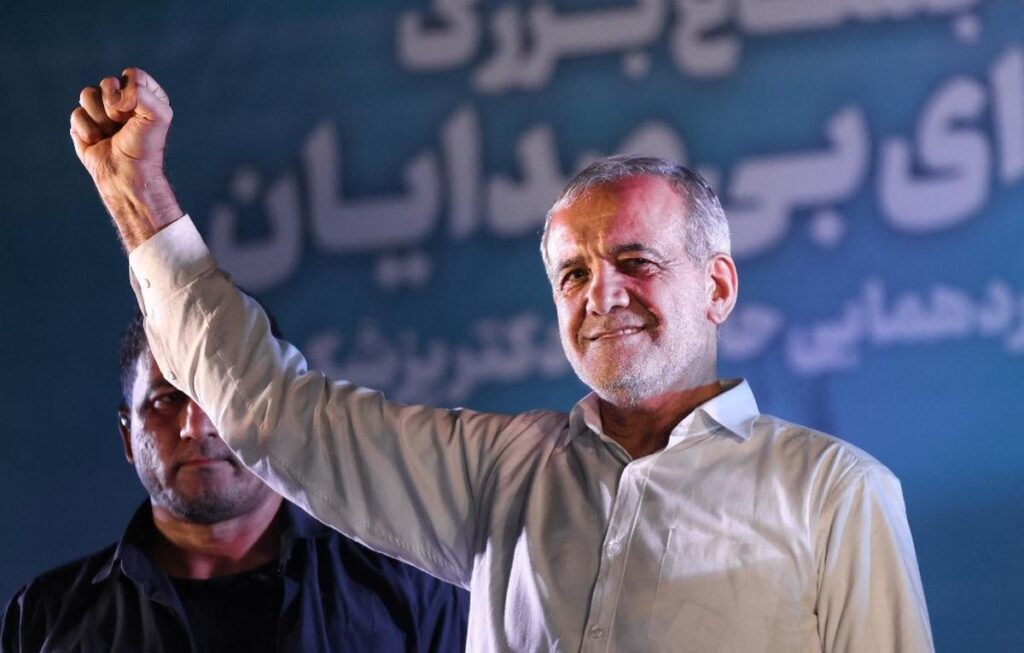Iran’s reformist candidate, Masoud Pezeshkian, has emerged victorious in the presidential election runoff held on Saturday, defeating ultraconservative contender, Saeed Jalili. The announcement was made by the interior ministry.
Pezeshkian, who advocates for improved relations with the West, secured over 16 million votes, accounting for approximately 54 per cent of the total vote, while Jalili garnered more than 13 million votes, roughly 44 per cent. Voter turnout was recorded at 49.8 percent, a significant increase from the record low of around 40 per cent in the first round.
In his first remarks after the win, Pezeshkian emphasised a new partnership with the Iranian people. “The difficult path ahead will not be smooth except with your companionship, empathy, and trust. I extend my hand to you,” he stated on social media platform X.
Earlier in the week, Pezeshkian had expressed his intent to “extend the hand of friendship to everyone” if elected.
Jalili, in a show of sportsmanship, urged his supporters to back Pezeshkian. “The person who is elected by the people is respected, his respect should be maintained,… and now we should make all our efforts to help him move forward with strength,” Jalili remarked in comments posted on X.
The election occurred against a backdrop of regional tensions, including the Gaza conflict, disputes over Iran’s nuclear program, and domestic discontent stemming from economic sanctions. The early election was necessitated by the death of ultraconservative President Ebrahim Raisi in a helicopter crash last month.
Despite Pezeshkian’s victory, political expert Ali Vaez from the International Crisis Group warned of the challenges ahead. “The continued conservative dominance of other state institutions & limits of presidential authority mean Pezeshkian will face an uphill battle in securing the greater social and cultural rights at home and diplomatic engagement abroad emphasized during his campaign,” Vaez commented on X.
Pezeshkian, a 69-year-old heart surgeon and former health minister, campaigned on a platform of reviving constructive relations with Western countries, particularly aiming to reinstate the 2015 nuclear deal. The United States’ unilateral withdrawal from the agreement in 2018 led to the reimposition of sanctions and Iran’s subsequent reduction in its commitments.
On the domestic front, Pezeshkian pledged to ease internet restrictions and oppose the enforcement of mandatory headscarves for women, a contentious issue since the 2022 death of Mahsa Amini in police custody.
While the U.S. State Department indicated that the election outcome would not alter its stance towards Iran, Russian President Vladimir Putin congratulated Pezeshkian, expressing hope for strengthened bilateral ties.
Iran’s main reformist coalition, along with endorsements from former presidents Mohammad Khatami and Hassan Rouhani, supported Pezeshkian’s candidacy. Despite the win, the ultimate authority on major policy issues remains with Iran’s supreme leader, Ayatollah Ali Khamenei, who had emphasized the importance of voter turnout.
The runoff election saw more than 600,000 spoiled ballots, a decrease from over one million in the first round, as reported by electoral body’s spokesman Mohsen Eslami.
